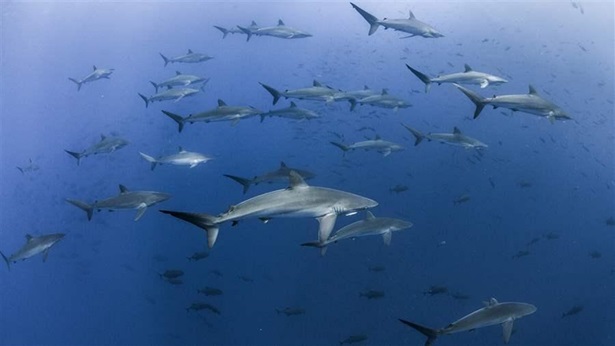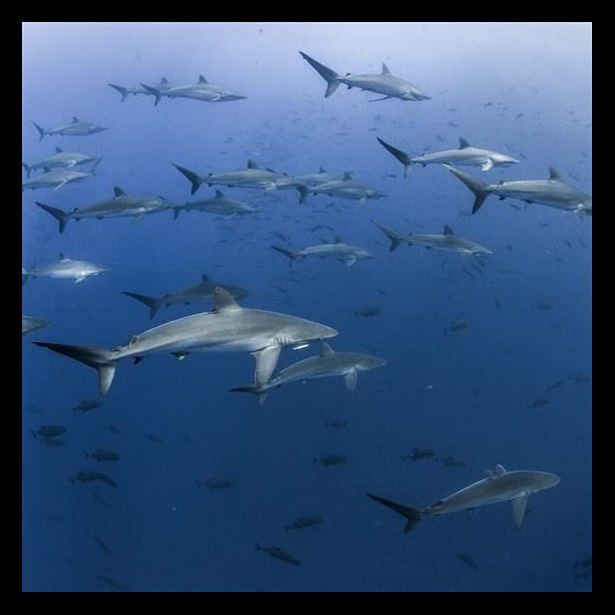The remarkable ecological and geological landscape of the Revillagigedo Archipelago earned the island chain in the Pacific Ocean off Mexico its recognition as a UNESCO World Heritage site in 2016. The four volcanic islands—Socorro, Claríon, San Benedicto, and Roca Partida—are sometimes referred to as the Mexican Galapagos and sit about 400 kilometers (250 miles) south of the Baja Peninsula.
The waters around the islands have the highest number of coral species in the Mexican Pacific, which helps support an ecosystem with 366 species of fish, including 26 found nowhere else. Four species of sea turtles nest, feed, and breed on the archipelago, while at least 28 species of sharks have been observed in the region. Humpback whales, which seek warmer waters for their calving grounds, make their winter home in Revillagigedo.
The islands and their seamounts are located at the convergence of the cooler waters of the California Current and the warmer waters of the North Equatorial current. This mixing of currents creates conditions that allow for upwellings that bring nutrients from the ocean floor to the surface, nutrients that support areas rich in marine life. The region also contains significant underwater volcanic features, including lava flows and hydrothermal vents that support diverse ecosystems without any sunlight and under some of the most extreme conditions on Earth.
On Nov. 24, 2017, Mexican President Enrique Peña Nieto signed a decree creating the Revillagigedo Archipelago National Park. The park spans 148,087 square kilometers (57,177 square miles), an area the size of the Yucatan Peninsula on the country’s eastern coast. This action will help Mexico protect marine life throughout the islands and preserve an important hub of connectivity for species that migrate across the Pacific.
The Pew Bertarelli Ocean Legacy Project worked with Beta Diversidad and the Coalition for the Defense of the Seas of Mexico (CODEMAR), two Mexican environmental organizations, to provide technical and scientific support for the establishment of this reserve and to raise awareness about the benefits of preserving the waters surrounding the archipelago.
Pew Bertarelli Ocean Legacy Project
The Pew Charitable Trusts and Dona Bertarelli created the Pew Bertarelli Ocean Legacy Project, with the shared goal of establishing the first generation of ecologically significant, large, and effective marine protected areas (MPAs) around the world. Today, the Pew Bertarelli Ocean Legacy Project also seeks to connect MPAs and help conserve key migratory species and entire marine ecosystems. These efforts build on more than a decade of work by Pew and the Bertarelli Foundation, led by Dona Bertarelli, to create large-scale, highly or fully protected MPAs. Between them, they have helped to obtain designations or commitments to safeguard nearly 12.6 million square kilometers (4.8 million square miles) of ocean by working with communities, local leaders, philanthropic partners, Indigenous groups, government officials, and scientists. Dona Bertarelli is a philanthropist, investor, sportswoman, and strong advocate for ocean conservation. The Pew Charitable Trusts is driven by the power of knowledge to solve today’s most challenging problems, including the need for effective marine conservation.




